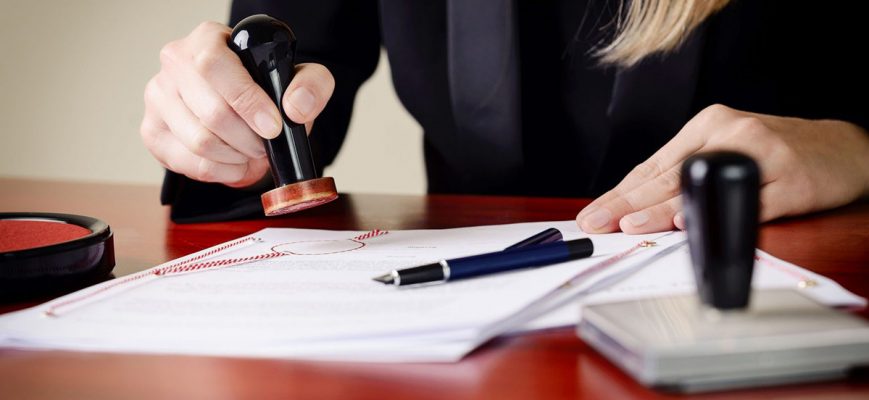What is a Sworn Translation?
A sworn translation (a.k.a. a certified translation) is an authorised translation service, used to translate legal documents or certificates. This could include birth certificates, university degrees, academic records, naturalisation applications, certificates of incorporation, statutes, and many other official documents.
Key points
- A sworn translation is a translation of document which — in order to be legally valid in the target language — must have been translated by an officially accredited translator — a “sworn translator”.
- In many countries, a sworn translation must be supplied as a hard copy, with the signature and seal of the translator.
- Only authorised, certified sworn translators can provide sworn translations.
Sworn translators endorse the documents they translate with their signature and seal. This means that the translator takes full responsibility for the accuracy of the document. This endorsement grants the document an official, formal status and a legal value that is equivalent to the original document.
Why Sworn Translations are important
When translating certain types of documents, it is necessary to have a guarantee of accuracy and legal recognition. Especially if you need to present these documents to an official body, such as a court, university or a notary. In some cases, a sworn translation is mandatory.
A non-sworn translator cannot officially guarantee the accuracy of a translated document, as they are not certified to do so. Thus, a regular translation of such documents will hold no value in the eyes of the authorities. A sworn translator officially guarantees the accuracy of the translated documents by signing and stamping the documents, and assigning a unique registration number. They also provide their credentials and contact details. When submitting legal documents to a court, a sworn translation is usually mandatory.
Is it worth paying extra for a Sworn Translation?
In the industry, we usually assume that sworn and technical translators possess the highest level of expertise. A sworn translator cannot be careless when working — linguistic precision is required. More importantly, a sworn translator cannot be lax when researching. If they are, they run the risk of being charged with negligence, perjury, or even contempt of court.
Sworn translators need to have a thorough understanding, of both the terminology and phrasing, of the languages they translate into. They agree to abide by precise rules, and to be bound by an ethical code. In some countries, sworn translators take an oath in court before they are officially recognised.
As a result, sworn translations are more costly than regular translation services. However, when you need it, it’s worth it!
Do remember, however, that there are many highly skilled, professional, unsworn translators working in the industry. We would advise that you check whether a sworn translation is actually required. If not, using professional translator, with legal experience, may be more cost-effective.
When is a Sworn Translation needed?
Different countries have different requirements, but if you need to certify a document, usually you have to use a sworn translator. You may also have to submit additional documents, such as The Hague Apostille. In some instances, you may need to get legal approval from the Chamber of Commerce and Industry (CCI). Regulations vary from country to country, so it is best to check with your Language Service Provider before proceeding.
Quicksilver Translate offers a sworn translation service, and we retain a number of qualified Sworn Translators who translate into a variety of languages. Contact us to find out more.

